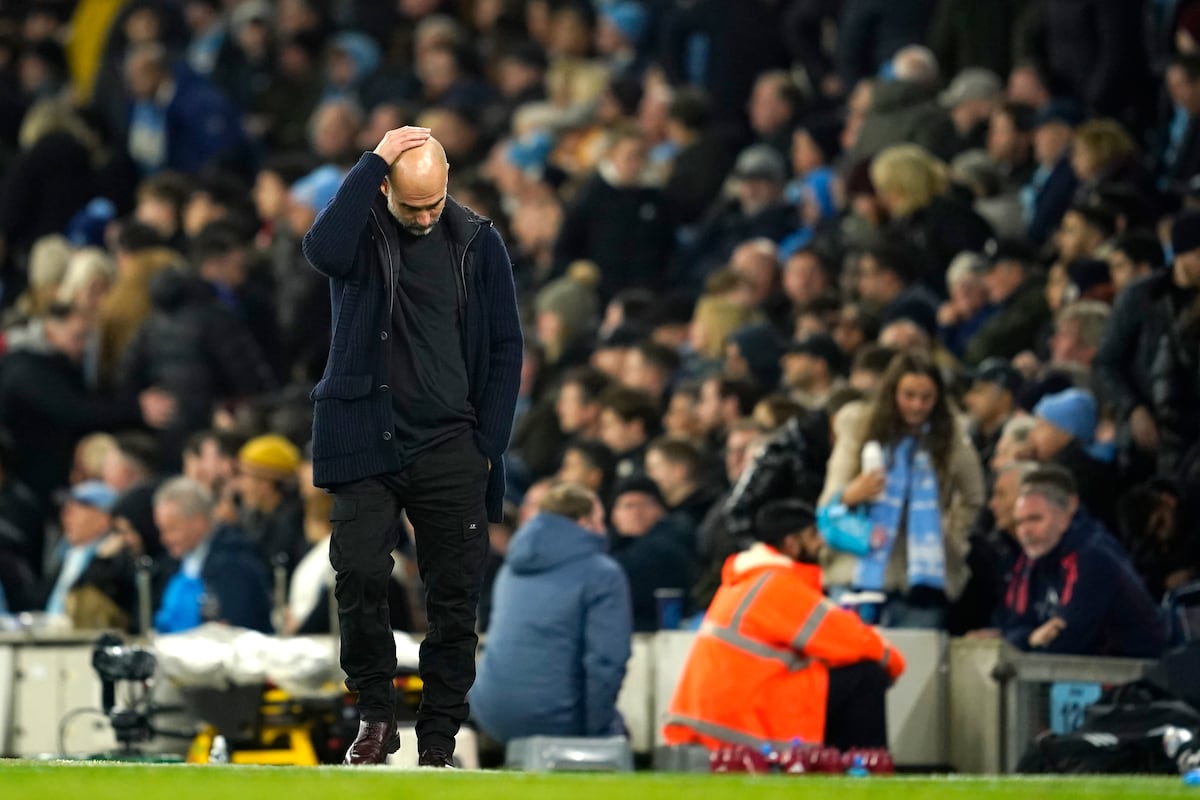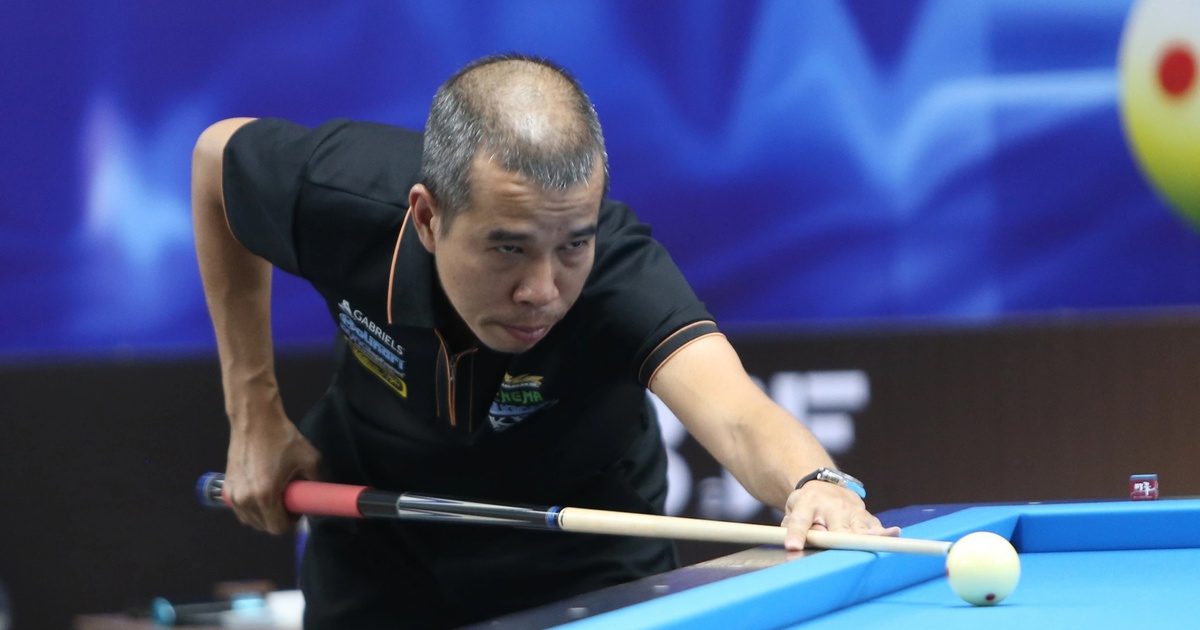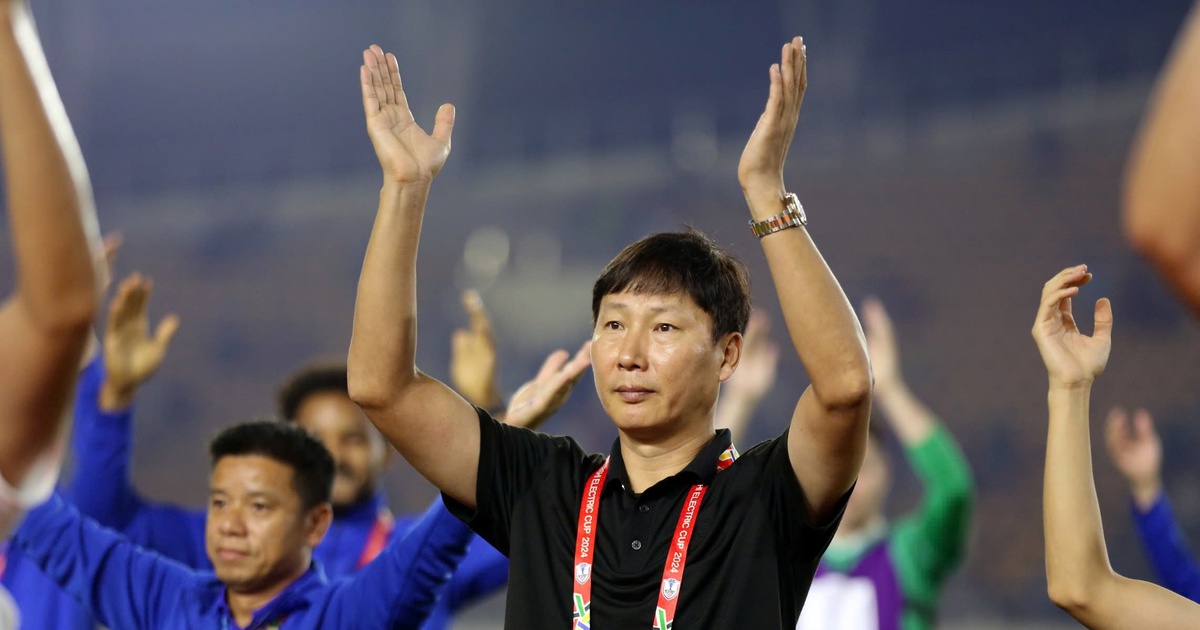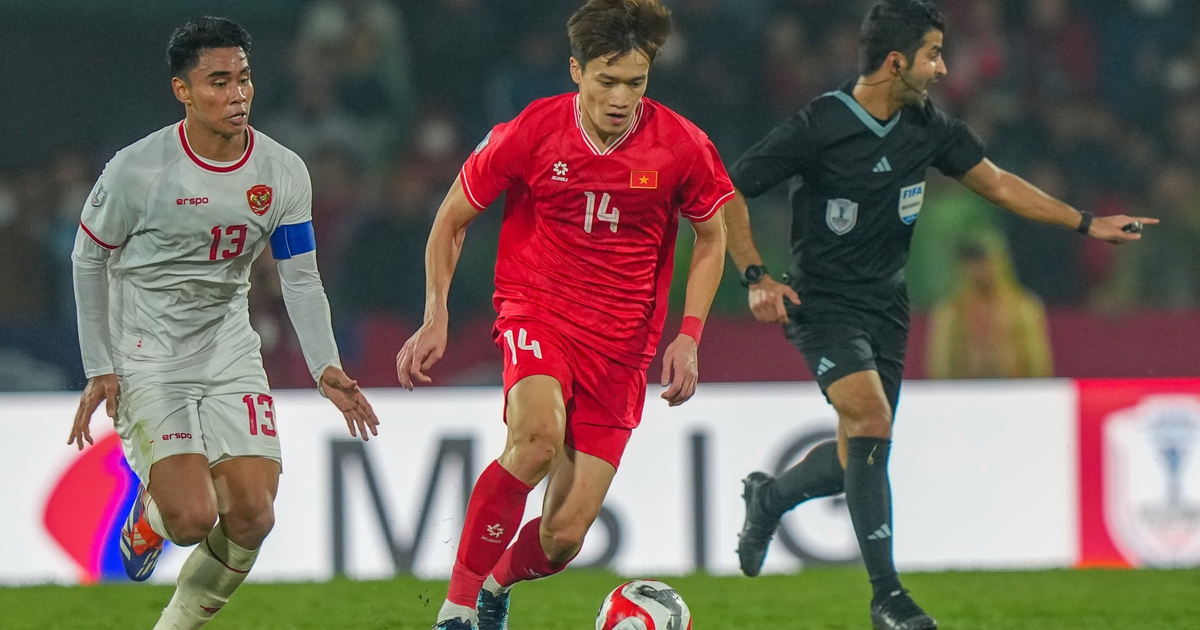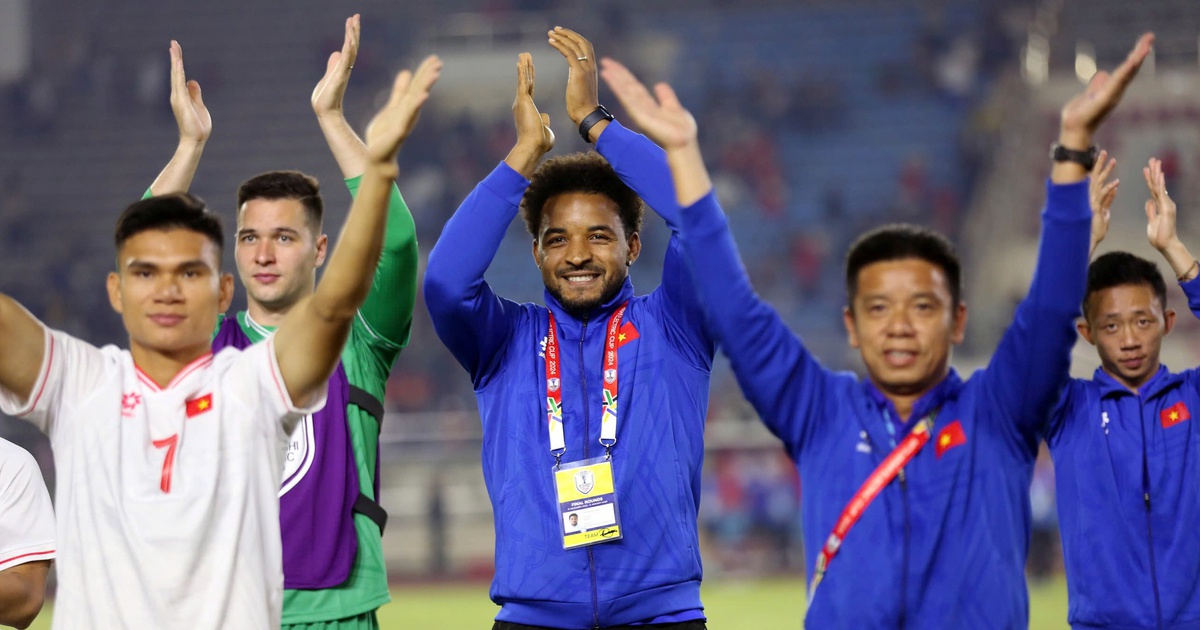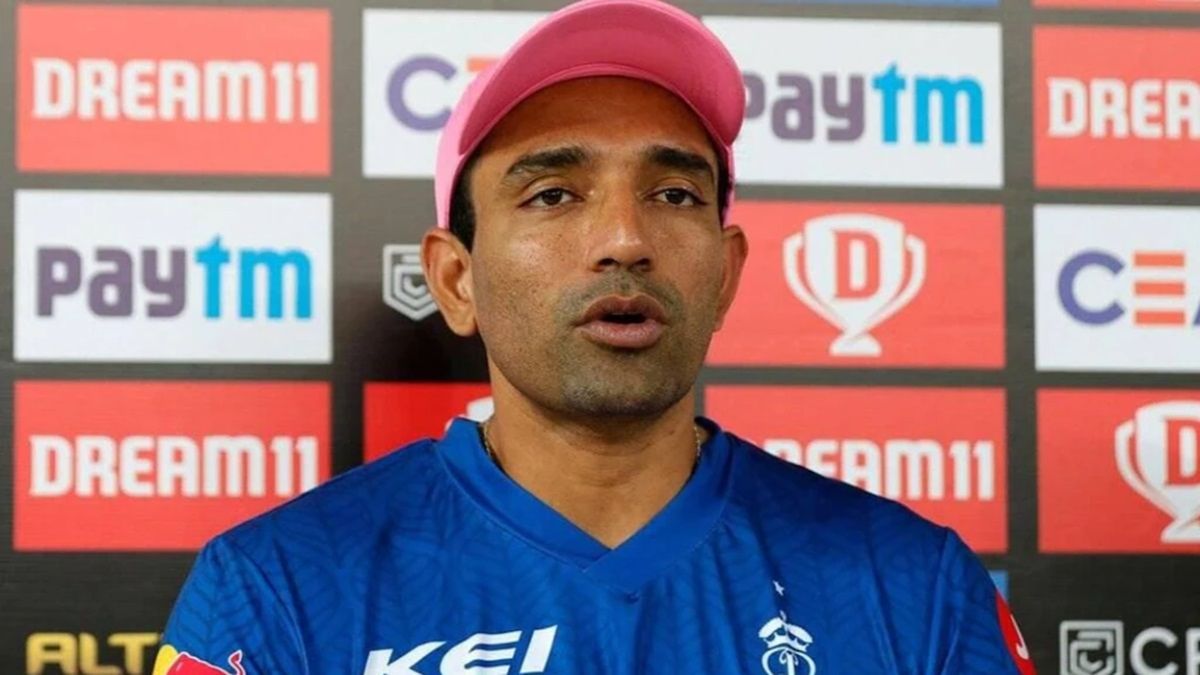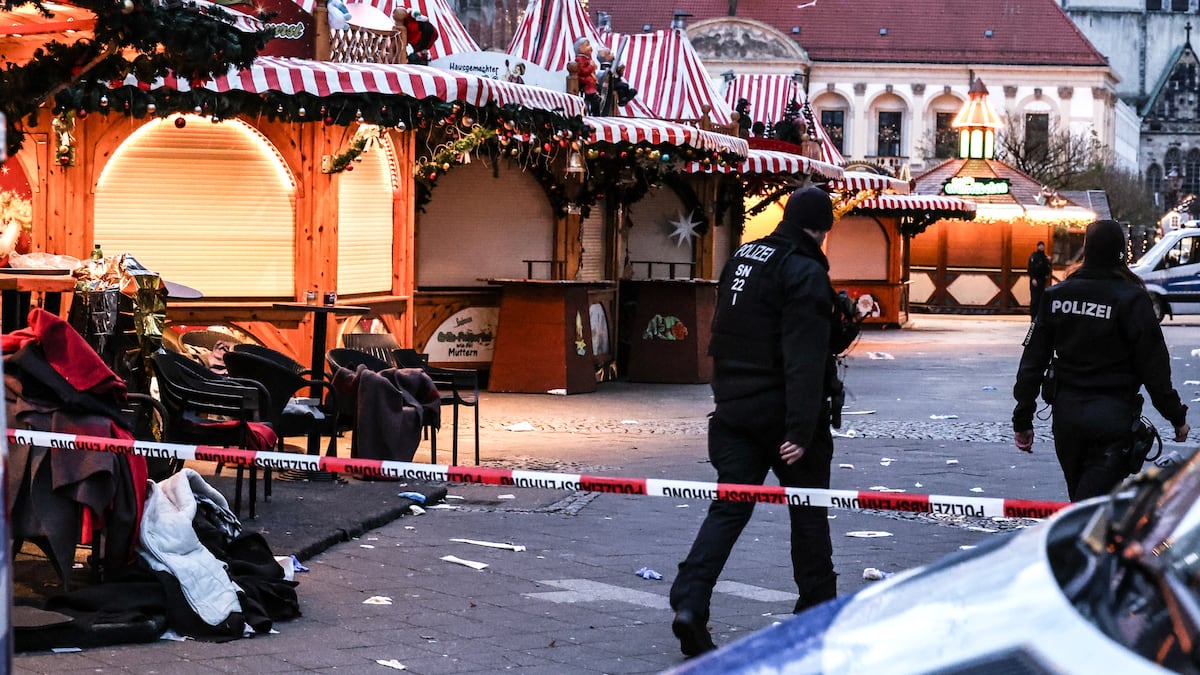“Ruben has been injured,” said Pep Guardiola, pale and with a hoarse voice. This Friday, like every week since August, the ritual was repeated. The podium in Manchester City’s conference room begins to resemble a sacrificial altar each time the Spanish coach settles into his chair to assess the situation. A new accident each time contributes to accelerating the calamitous spiral that for 40 days has dragged the team through a dark streak: 11 games, one victory, two draws and eight defeats. Something unusual considering that City suffered seven defeats in 59 games in all competitions last season, on their way to lifting the fourth consecutive Premier, a record that no team had previously achieved. Reason for despair for Guardiola, who last Sunday—after wasting a 1-0 lead in the final minutes of the derby with United—was on the verge of declaring himself incompetent and resigning in public. “I’m not good enough to solve this problem…” he said. “Any other coach would have been fired by now.”
Temperamental by nature, at 53 years old, Guardiola has not been afraid to show his emotions or his defects, and on occasions his feelings have gotten out of control in the form of self-flagellation, even though a large part of the defeats suffered were due to accidents, distractions clamorous of their defenses or small specific imbalances. Against United, Juventus and Feyenoord, City created more chances, had more shots on goal and controlled the ball better than their opponents. In fact, City’s play has shown remarkable consistency despite being exposed to the consequences of two powerful overlapping destabilizing factors: a plague of injuries in an impoverished squad after a series of three clearly selling summer markets.
Since 2022, City is not among the ten teams in Europe that have invested the most in players and is the only one with a neutral accounting balance, according to Premier sources. Since 2022, Chelsea, PSG, Manchester United, Tottenham, Arsenal, West Ham, Bayern, Nottingham Forest, Brighton, Newcastle, Aston Villa, Atlético, Real Madrid or Juventus have spent more than City, which has bought footballers for 400 million euros and has sold for another 400. The reason is existential. The Premier accuses the club of illegal financing before the courts and threatens it with sanctions that include expulsion from the tournament. The sponsorships of the Etihad airlines and the Bank of Abu Dhabi were blocked by the jurisdiction of the English league and City appealed the penalty to the ordinary courts, which in October agreed with them, but only provisionally. Faced with such scrutiny, the player base was reduced when a plague of injuries devastated their references in defense: Rodri, Dias, Stones and Kovacic.
Ruben Dias is the only centre-back with a true brand vocation in the squad. No one on City’s roster is capable of maintaining the level of attention and aggressiveness for the 90 minutes of the game like the Portuguese does, who unlike Gvardiol, Aké, Akanji and Stones – frustrated attackers – never dreamed of being anything other than a defender. Dias’ injury at the end of October coincided with the collapse. City had not lost a single game when, without the Portuguese, they lost against Bournemouth, Brighton, Tottenham, and then were beaten by Sporting (4-1) and tied in injury time against Feyenoord (3- 3) in a Champions League that went wrong.
Pessimism took over Guardiola’s speech when yesterday he announced to the press that Dias had broken down again. He did it when he was talking about getting out of the hole: “Sooner or later we will turn this bad streak around… I don’t know when because Ruben will be out for three weeks. “He has a muscle injury.”
“The squad is good, I only ask to have my players back in full shape,” insisted Guardiola, who for weeks seems to be sending a message to the club’s owners to go to the winter market in search of players to help him. to cut the bleeding.
In Emery’s fiefdom
This Saturday City will not have Dias, a player who, in the absence of Rodri, is essential. The team has not been able to win without Dias this season, but they get Stones and Kovacic back on their visit to Villa Park (1:30 p.m., DAZN). Unai Emery’s fiefdom is the last field that saw him fall, exactly one year ago, in his triumphant march towards the Premier title. Before traveling, Guardiola submitted to questions from journalists who follow the team, naturally intrigued by the reaction of the most innovative and consistently successful coach of the century, with 12 league titles between Spain, Germany and England, a milestone without precedents. The audience remains expectant for what the show that Guardiola will offer may bring in his fight to interrupt a succession of setbacks that have turned a team that seemed to anticipate everything into one that seems to be overcome by everything.
“I managed good times and bad times,” he said. “In 14 years as a coach I had bad streaks but after a while we were able to come back and now it takes longer. We will see what happens in the future. We have had more than 40 days of bad results. If you compare them with the previous eight years, the balance improves a lot. We have done incredible things. Our past in the last eight years speaks for itself and these last 40 days speak for themselves as well. We have to win again regardless of the circumstances.”
There are only two precedents for comparable streaks in Guardiola’s career. Five games without a win with Barça in 2009, and six games without a win with City in 2016. In both cases, these were two logically immature projects in a development process. Now it’s different.
For the first time in his career, Pep Guardiola has donned the Gregg Popovich suit. As the old coach of the San Antonio Spurs did in the years that ended in the 2014 NBA Finals, the Santpedor coach faces the most difficult challenge: reviving a dynasty that is declining.

